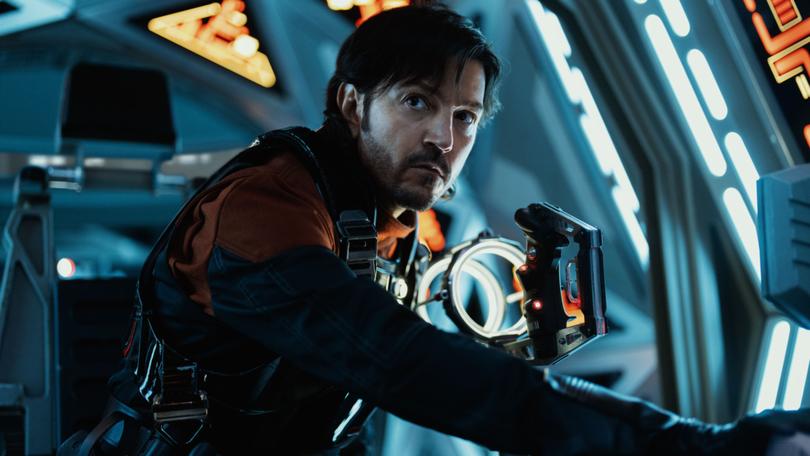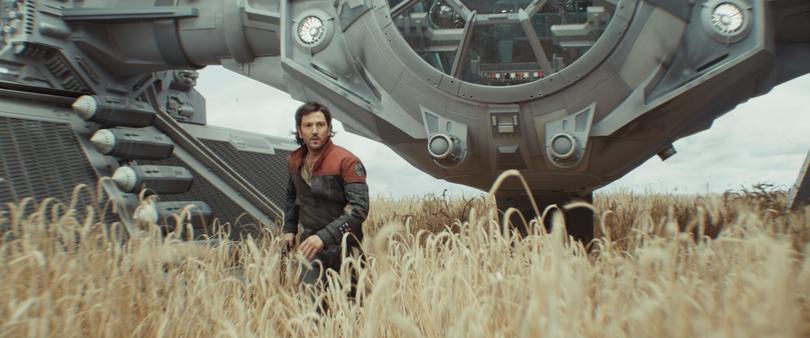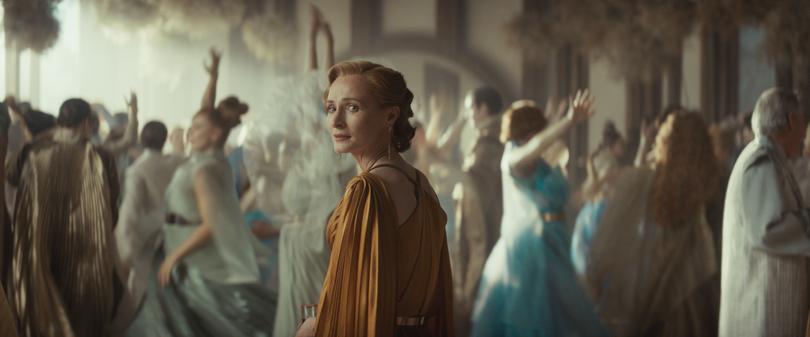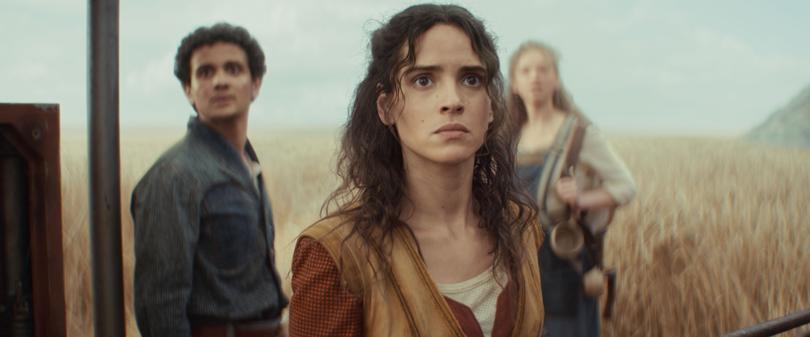Andor season two: Star Wars political thriller provokes rebellion in the face of fascism
The stars and creator of Andor is at pains to avoid referencing Trump but the parallels are unavoidable.

The great irony that those Star Wars fans who complain about “wokeness” always seem to miss is that George Lucas conceived the story as a parable for the Vietnam War.
The big bad of his universe was Emperor Palpatine, who had been inspired into existence by Richard Nixon’s attempt to change the US constitution so he could run for a third term.
“That was the idea, which was, ‘How does a democracy crumble? How does it die?’,” Lucas previously said in an oral history for the Star Wars website. “When it doesn’t die with a revolution – it does in some cases – but not in the world of the ideal democracy, which we thought we had at that time, how does that happen?
Sign up to The Nightly's newsletters.
Get the first look at the digital newspaper, curated daily stories and breaking headlines delivered to your inbox.
By continuing you agree to our Terms and Privacy Policy.“Would the people vote for it? And yes, they do vote for it, that’s the whole point. There’s an outside threat, and that threat allows the tyrant to take over. And the populace gives up the democratic powers and this guy is suddenly running the show. You end up with the Empire.”
Lucas had been talking about the prequel films, which charted Palpatine’s political machinations to consolidate power. With the release of the second season of Andor, we’re almost at the endpoint of how that power is manifested throughout the galaxy.

Andor is a prequel to the 2016 spin-off Rogue One, and its first season was universally lauded for its sharp writing and grounded performances in a political story that explored the relationship between fascism and revolution.
It was recognisably Star Wars but in some ways it wasn’t. It didn’t traffic in mythology and the supernatural Force, and its writers including creator Tony Gilroy had extensive experience in political thrillers including Michael Clayton, House of Cards and the Bourne movies.
Andor is about the fight against Palpatine and his oppressive regime, told from the perspective of Cassian Andor (Diego Luna), who started the show as a smuggler and who we know will be a rebel committed to the downfall of the Empire by Rogue One.
How does he get there? Andor is that journey, along with an ensemble of characters who are all moved to action.
There’s a line in a season one episode that is repeated in season two by a different character about a different situation, “Someone needs to tell him what’s going on here”, to which the other person says, “It’s going on everywhere”.
That’s a grim state of affairs. Oppression and cruelty is widespread, with the Empire’s instruments reaching far.
The result of that is it is has stirred rebellion, whether it be the regular folks whose towns are being exploited and whose rights have been stripped away, or in the higher reaches of power, such as Senator Mon Mothma who is massing political support to challenge the Emperor’s acts.

“That’s what this is,” Gilroy told The Nightly. “This show is about ordinary people across the galaxy. Suddenly history comes knocking on your door and says ‘I’m here, what are you going to do?’. That’s what happens.
“What’s the curse? ‘May you live in interesting times’, and these people are answering the door.”
Genevieve O’Reilly, who reprises the role of Mon Mothma from Revenge of the Sith, added, “In history, there are always tipping points. If you look back through many revolutions, there are tipping points, the moment that then brings people together to stand together to find their courage.
“It’s a wide collective of (people), of different ages and different ethnicities, and so I hope that people who are watching it can perhaps see or recognise themselves in someone on there. I think they will.”
It’s hard to not see the parallels between what’s happening on screen in Andor and the political environment in the US where there is a resurgence of executive power and decree, and government intervention impacting personal freedom and difference.
But the Andor cast and crew pointedly avoid referencing current events and certain American leaders.

For one thing, the scripts for season had been written years ago, and filming had started by the time the first dropped in late-2022. If not for strike-related delays, these episodes would have been released last year.
“We did not write this with a newspaper, in any way, shape or form,” Gilroy said. “What’s really distressing is when you think about the fact that it’s really peace, prosperity and calmness that’s the rarity in history.
“Those moments are really few and far between, and revolution and oppression, all these things, are rinse and repeat. It’s over and over and over again. I’m not psychic.
“There’s sadly an infinite number of places over the (past) 6000 years that if you could get this in front of people they’d relate to it in some way.”
Adria Arjona said Andor is as relevant today as it would be in 2035, 2045 and 2055.
“It’ll be relevant forever, and it almost feels like I’m part of this little time machine,” she said. “History repeats itself and Tony’s references were of history not so far away, from maybe 50 or 100 years ago.”
Luna has been playing the character since 2016, and he has held Cassian Andor close to him since then. Filming wrapped more than a year ago and Luna missed the character and the experience every day.
“It’s where (this character) takes me, because this character means a show that I care a lot about, it talks about ideas that matter to me.
“This whole idea of telling the story of regular people because we have a lot to learn from those who are not normally in the movies.
“I miss the family, I miss the dynamic and I miss the community we belong to.”
The off-screen Andor community is reflected in the significance given to the onscreen community. The series’ characters don’t work by themselves – not even the antagonists. With a political thriller, when you’re plotting or disrupting, you have to rely on the contributions of others.
“These characters will be nothing by themselves,” Luna added. “It’s a story about community. It’s quite contradictory that the show is called Andor because, to be fair, it’s a story about collaboration. It’s an ensemble piece.
“Because they have each other, they are capable of doing something, and that’s a beautiful thing to remind ourselves of every day, today and in the future too.
Andor season two premieres on Disney+ with three episodes and then weekly on Tuesdays

